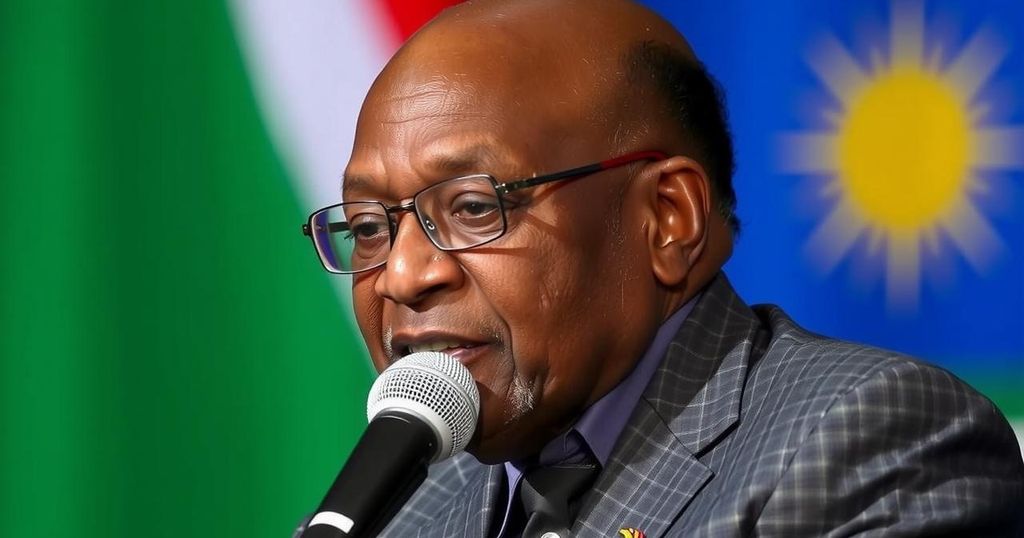Botswana President Acknowledges Election Defeat, Signaling Political Change
In a significant political shift for Botswana, President Mokgweetsi Masisi conceded defeat in the October 30, 2024 election, thus ending the Botswana Democratic Party’s 58 years of rule since independence. The opposition Umbrella for Democratic Change, led by Duma Boko, emerged as a strong contender. Masisi’s concession occurred before final results, reflecting the changing political landscape in Botswana.
In a historic turn of events for Botswana, President Mokgweetsi Masisi has officially conceded defeat in the general election held on October 30, 2024. This significant acknowledgment marks the end of 58 years of governance by the Botswana Democratic Party (BDP), which has been in power since the nation gained independence from British rule in 1966. Masisi’s admission of loss occurred prior to the complete tally of votes, as his party was reported to be trailing in a disappointing fourth position in the parliamentary elections. The main opposition party, the Umbrella for Democratic Change (UDC), led by presidential candidate Duma Boko, demonstrated robust performance in the preliminary results, positioning Boko as the likely successor to Masisi in leading this southern African nation, known for its prominence as a major diamond producer. Following the election, President Masisi communicated directly with his opponent, Duma Boko, to express his concession. While the electoral landscape of Botswana is renowned for its stability, this election represents a pivotal juncture for the country’s political evolution, as the UDC’s ascendancy could lead to transformative changes in governance and policy direction.
Botswana, recognized for its long-standing democratic stability, has historically been governed by the Botswana Democratic Party since its independence in 1966. The nation has enjoyed a reputation for good governance and economic prosperity, particularly due to its diamond mining industry. However, discontent among the populace has been gradually mounting, reflecting a desire for political reform and increased accountability. The October 30 elections were seen as a critical opportunity for the electorate to voice their opinions on years of BDP leadership. The election outcome highlights a shift in political power, with the UDC set to play a crucial role in shaping Botswana’s future.
The recent election in Botswana signifies a remarkable shift in the nation’s political landscape, ending a lengthy period of BDP governance. President Mokgweetsi Masisi’s concession not only reflects the electoral choices of the Botswanan people but also indicates a potential for substantial change under the leadership of the UDC and its candidate, Duma Boko. As Botswana embarks on this new political chapter, the implications for governance and policymaking are yet to be fully realized, marking an important moment in the country’s democratic journey.
Original Source: apnews.com




Post Comment